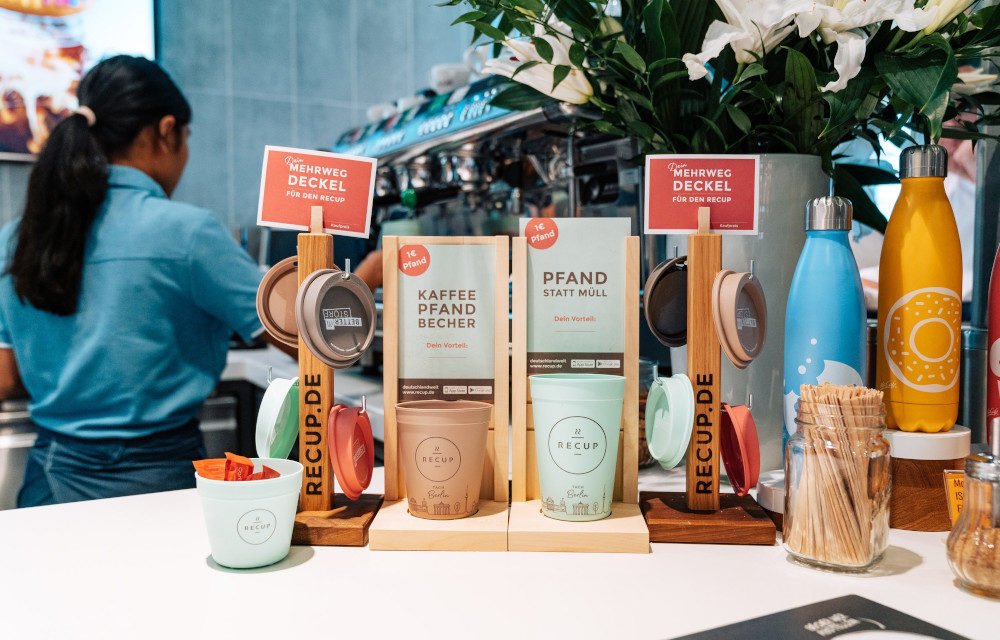
As with all food packaging, food safety for the products will be of prime importance for fast food packaging too. Only tried and tested Loop cleaning systems are used for cleaning, disinfecting and storing the reusable containers and cups, in order to ensure optimal hygiene standards
BURGER KING INVESTS IN SUSTAINABILITY
The Loop test project for fast food packaging is part of the sustainability strategy for this fast food chain. Burger King has made a commitment: they are aiming to only use fast food packaging which comes from renewable, recycled or certified sources by 2025 in order to reduce their carbon footprint consistently. Their waste management policy will also be improved: The restaurant chain will recycle 100% of all of its guest packaging in the USA and Canada by 2025.
The entire food industry is set to benefit from engagement with “Restaurant Brands for Good”, which will enable them to make huge leaps in reducing packaging waste.
“We’ve found a reusable solution that meets our high quality standards and simultaneously offers our customers the level of convenience that they need in the Loop system,” says Matthew Banton, Global Head of Innovation and Sustainability at Burger King, synopsising the concept behind this new project.
Burger King is in good company in implementing Loop reusable packaging: Unilever, Tesco, Tupperware, Häagen-Dasz, Beiersdorf and many more have put their trust in this reusable system from TerraCycle, an American recycling company.
MCDONALD'S IMPLEMENTS REUSABLE CUPS
McDonald’s also wants to invest more in reusable solutions and is planning to cooperate with TerraCycle in the UK from 2021. They’ll start off by launching reusable cups for hot drinks. In Germany, the ReCup programme has been running since 2020. Reusable coffee cups are on offer in selected restaurants. Customers can then return these after using them to get back the deposit they have paid on them. There are also similar solutions in other markets, including the Philippines.







